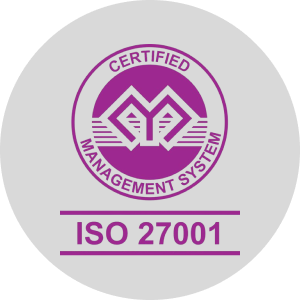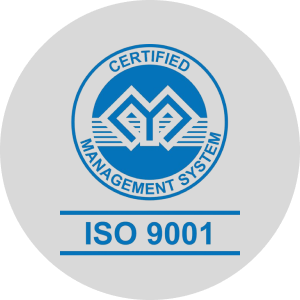
HostingB2B » iGaming Hosting » Canada iGaming Hosting
Low-Latency Canada iGaming Hosting: Built for MGA License Compliance
Compliant Solution for:
iGaming - Betting- BlockChain - eCommerce

iGaming Partners

Gaming Excellence
Full Portfolio of B2B iGaming Hosting in Canada
Ontario’s new iGaming market allows private-sector operators of online sportsbooks and casinos to legally take bets from within the province
To host their servers and platform for iGaming in Canada, they must adhere to the security guidelines set by the AGCO, which include data and information management, system account management, software and server hosting, and change management.
For More information read here or visit directly the MGA website (www.agco.ca)
SUPPORT & GUIDANCE
24/7/365 Free Premium Dedicated Hosting Support
Most importantly, our round the clock Support is available for you via Live Chat, Ticket System (Email) and MS Teams.

Offered iGaming Hosting Locations

Cyprus

Canada

LA

Malta

Brazil

Curacao
Fast Secure Reliable iGaming Hosting Solutions
As per the Gaming Authorisations and Compliance Directive you need to have a server hosting in Canada for your B2B – B2C Gaming Licence.
Whether you are a startup in Canada applying for B2B – B2C Licence or an iGaming Giant with multiple Geographic Jurisdiction our iGaming hosting solutions ensure your services are safe, secure, and Compliant.
Application Consulting
Our Industry knowledge in jurisdictions such as Cyprus - Malta - Curacao & LatAM will help you eliminate delays in getting your licence application approval. Our iGaming consultants are supporting you in every aspect of your application from Company incorporation - Bank Account opening - Application Submission - Audit - Policy Guidelines - Advanced Tax Consulting - Accounting.
Global Partners
A global selection of partners, proud to serve you and B2B Gaming Consultants in Malta and Cyprus prodide your best choice for Malta iGaming Licensee to integrate as Whitelabel or turnkey solution with any provider of your choice and have a single point of contact for smoother integration and troubleshooting assistance you may require. Parners for Company and Fiduciary - Bank Account - Compliance AML - TAX and other Corporate services.
Security / Compliance
Our 13 years of expertise in hosting and managed services for both iGaming / Betting businesses is what make's us your trusted hub for b2b gaming services malta, allow you to be compliant in regulated countries that you operate. Our local data centers in Malta - Cyprus and UK comply with the highest standards, such as ISO 27001, SOC type 1 & 2 and PCI DSS.
Enterprise Hosting
With Datacenters in key locations, our iGaming services in Canada and US and our Ontario iGaming hosting solutions guarantee your gaming business is approved and in compliance with the highest standards. Our company can offer any complexity Servers such as Managed Datacenter Services, Web Hosting, Web Development and SEO Services.
Technical Specifications
Support
Support via live chat, email tickets, daily backups, online portal, and community forum access.
Full Control
Enterprise Manager: Full root access, cloud control, database management, real-time stats, ADDM, active reports.
Free Monitoring
SNMP Monitoring Remote Desktop Monitoring ICMP Control DDoS Mitigation and ALerting
Hosting Features
Easy control panel, high availability, OS templates, 99.9% uptime, IPv4/IPv6, affordable dedicated IP support.
Managed Services
Server installation, administration, database management, backups, and high availability.
Security
Secure your VPS with advanced firewalls, internal security, and routine backups for peace of mind.
FAQ
Find answers to some frequently asked questions about Canada iGaming hosting:
Whether you’re looking for a small blog, an e-commerce site, or a sophisticated iGaming platform, the “best” iGaming hosting service in Canada will depend on your particular requirements. Seek out Canadian data center providers for general iGaming hosting if you want the best speed, robust uptime guarantees, dependable customer service (ideally around-the-clock), and scalable plans.
High-performance dedicated servers or cloud solutions, strong DDoS protection, cutting-edge security measures, and compliance knowledge pertinent to Canadian gambling laws will all be given top priority by the “best” service for specialized requirements like iGaming? HostingB2B guarantees that your platform satisfies industry standards in Canada by providing high-end hosting solutions designed for demanding sectors like iGaming.
Indeed, online gambling, or iGaming, is permitted in Canada; however, regulations governing this activity are mainly managed at the provincial and territorial levels, resulting in disparate laws throughout the nation. Provincial lottery corporations used to provide the majority of online gambling. Provinces like Ontario, however, have taken steps to create fully regulated private iGaming markets since 2021. In accordance with their respective regulatory frameworks, private operators can now legally offer online casino games and sports betting in these provinces by obtaining licenses (e.g., iGaming Ontario under AGCO).
Similar models are being investigated or have been approached by other provinces. Because of this changing environment, it is essential for iGaming operators to comprehend the particular laws of every Canadian province they want to target.
Indeed, internet gambling is a very common and quickly expanding sector in Canada. Online poker, online casino games (such as slots and table games), and sports betting are among the many types of online gambling in which millions of Canadians actively engage. At least 19.3 million Canadians are reportedly regular online gamblers, spending a substantial sum of money each year on both domestic and foreign sites.
Focus has shifted from traditional land-based casinos to the online market due in part to the ease, accessibility, and variety of games offered by online casinos, particularly in the wake of the pandemic. Canada is a lucrative target for iGaming operators, as evidenced by the strong market interest.
“Canada online gambling” and “iGaming in Canada” basically refer to the same activity. All types of online betting and casino games are included under the more industry-specific or contemporary term “iGaming.” Therefore, when you talk about “iGaming in Canada,” you’re talking about online gambling that takes place in Canada.
When referring to the activity itself, there is no real distinction between the terms “online gambling” and “iGaming,” despite the fact that some people may use the former as a more general, informal term and the latter as more representative of the professional sector. Both phrases refer to Canadian players’ access to online casinos, sports betting, poker, bingo, and lotteries.
In Canada, winnings from online gambling are typically tax-exempt for casual players. Winnings from gambling are generally not seen by the Canada Revenue Agency (CRA) as a source of consistent revenue from a business or job, but rather as a windfall or a lucky break. As a result, winnings from casual gambling are exempt from tax return reporting requirements.
However, winnings from gambling are taxable as business income if it becomes a consistent and systematic source of income and is deemed a business by the CRA (professional poker players or sports bettors, for example). Professional gamblers may also be able to deduct associated costs in these situations. For particular circumstances, it’s always advisable to speak with a tax expert.
In Canada, it is legal to stream content online as long as it comes from reputable, licensed sources. This includes a number of legal sports streaming platforms as well as well-known streaming services). Broadcasting is actively regulated in Canada, and new laws such as the Online Streaming Act (Bill C-11) seek to bring online streaming services under the Broadcasting Act, mainly to promote Canadian content.
Like in the majority of other nations, streaming content from unapproved sources—also known as pirated content—remains illegal. Whether the platform or the streamer has the required licenses and rights to distribute the content in Canada determines whether it is legal.
Depending on the hosting type selected, the resources needed, and whether you choose a custom build or a white-label solution, the cost of hosting an iGaming platform in Canada can vary greatly.
Using dedicated servers or reliable cloud hosting from a company like HostingB2B (which is necessary for iGaming) for hosting alone would cost hundreds to thousands of Canadian dollars per month, depending on CPU, RAM, storage, bandwidth, and security features like DDoS protection. The high-performance, secure, and compliant infrastructure required to run demanding iGaming operations is reflected in these prices.
The top Canadian iGaming host is one that can offer a secure, high-performing, and compliant infrastructure designed especially to meet the exacting requirements of online gambling platforms in Canada’s changing regulatory landscape. Important characteristics to search for include:
- Canadian Data Centers: To meet possible data residency requirements (such as in Ontario) and provide the best low latency for Canadian players.
- Sturdy hardware includes scalable cloud hosting or high-end dedicated servers with fast NVMe SSD storage, lots of RAM, and strong CPUs.
- Advanced Security: Web application firewalls (WAF), thorough DDoS protection, and frequent security audits.
- High Bandwidth & Uptime: To manage peak traffic, unmetered or extremely high bandwidth and high availability are guaranteed. Compliance Expertise: A host who is aware of the security and technical standards established by provincial authorities such as the Alcohol and Gaming Commission of Ontario, or AGCO.
- 24/7 Professional Assistance: specialized technical assistance that is aware of the operational requirements of iGaming.
Solutions from HostingB2B are especially made to satisfy the exacting requirements of iGaming hosting in Canada.
When it comes to delivering online gambling content, an iGaming Host and a CDN (Content Delivery Network) play different but complementary roles.
- Your entire iGaming platform—including game logic, databases, player accounts, and payment processing—resides and functions on an iGaming host, such as a dedicated server or cloud instance from HostingB2B. It serves as the “origin” server for all of your essential data and features.
- A CDN is a geographically dispersed network of proxy servers that caches static and occasionally dynamic content (such as images, videos, and game assets) closer to end users all over the world. The CDN lowers latency and load on your primary iGaming host by delivering the static content from the closest “edge location” when a player visits your iGaming website.
In essence, your iGaming host manages the platform, and a CDN improves the user experience by bringing cached elements closer to players, speeding up content delivery. For an iGaming business to succeed, both are essential.
Since it usually refers to the licensing and regulatory environment, the operator’s target markets and priorities determine the “best iGaming host” in terms of jurisdiction. A number of nations are regarded as elite:
- With comprehensive EU-compliant licenses (MGA), a stable regulatory environment, a trained workforce, and alluring tax incentives, Malta is widely recognized as the world’s premier iGaming hub. Perfect for a wide European and global audience.
- Although compliance costs are high, the UKGC, a highly respected and stringent regulatory body, ensures a safe and equitable market. Ideal for specifically focusing on the UK market.
- Gibraltar: Another reputable and long-standing EU jurisdiction, renowned for its knowledge and strong regulations.
- Curaçao: Despite undergoing significant regulatory modernization, this country has long been recognized for its affordable and relatively simple single license, which offers a wide global reach (with some important market restrictions).
- Canada (Ontario): Developing into a prominent private operator-regulated market, this market is perfect for businesses targeting the strong Canadian player base.
Since many operators hold licenses in multiple regions, the “best” jurisdiction combines access to target player markets, tax efficiency, and regulatory integrity. In these important iGaming jurisdictions, HostingB2B offers infrastructure solutions.
Powering the Web: Our Latest Articles


What Most iGaming Operators Get Wrong About Infrastructure

Overview of iGaming Compliance Requirements (MGA, Curaçao, Cyprus NBA)

How To: Unlock the Power of Web Solutions

How to Start an iGaming Business with 6 Steps
- Stratigou Timagia Avenue 18, Omega Business Center 2nd Floor, 6047, Larnaca/Cyprus
- +357 24 205888
- admin[at]hostingb2b.com
- sales[at]hostingb2b.com
HOSTING
SOLUTIONS


Security
Application Hosting
Solutions as a Service
Networking
Datacenter & Network Information
Company Blog
Legal
Company Info
- About Us
- Certification & Awards
- Investor Relations
- Contact Us
Careers & Affiliates
Contact Info
- +357 24 205888
- admin[at]hostingb2b.com
- sales[at]hostingb2b.com

"Their dedication to ensuring customer satisfaction is evident. Its comforting to know that there's an responsive support team available, for assistance. Without hesitation I highly recommend Hosting B2B Cyprus for their service well as the exceptional support offered by George Sarris. Thank you for making our hosting experience a positive one."
"I have used these chaps for about a year now, and their response times and knowledge of their services is really excellent. The most recent time I needed to contact them was around adding in a temporary server just for a few days - they were so helpful and quick to respond. Just what I wish so many other companies would do (take note, AWS!!!)"
"Great company! It was especially pleasant to work services sales, who made every effort to get everything we needed on time and get a positive result in the end. Not everything went smoothly at the beginning, but Marina S. did her best to solve the initial problems. After a few months, I can say that I'm definitely satisfied."